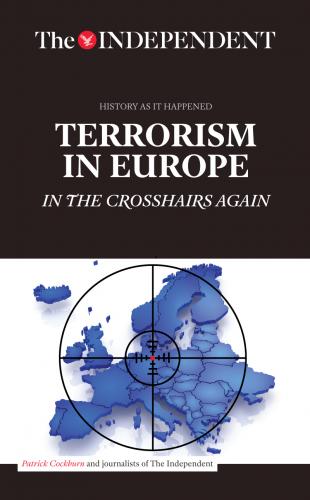Having spent four years going over the evidence, the SCCRC thought there was sufficient doubt to entitle Megrahi to lodge a second appeal. The hearing got under way in April, and was expected to last a year. Twenty years after the worst terrorist atrocity committed on British soil, the British Government was faced with the unpalatable possibility that the only person convicted of involvement could be declared the victim of a miscarriage of justice - until Megrahi's failing health offered another way out.
But Britain was also under diplomatic pressure to release a man who was regarded in Libya and other parts of the Arab world as a political prisoner. At stake were not just those lucrative oil and construction deals, but the well-being of Britons working in Libya. Although Libya is striving to restore its image, it is still a dictatorship that does not play by the normal rules of diplomacy, where there are powerful politicians who hanker after the old ways of radical confrontation with the West. This was dramatically illustrated in a grubby story involving another of Gaddafi's sons and the Swiss police. In July 2008, Hannibal Gaddafi and his pregnant wife, Aline, visited Geneva, where they were accused of beating their servants. They were arrested, and spent two nights in jail. The Libyan reaction was swift and furious. They imposed trade sanctions, stopped Swiss flights to Tripoli, withdrew billions from Swiss banks, cut deliveries of crude oil that make up half of Switzerland's oil supplies, denied the new Swiss ambassador a visa, and arrested two Swiss citizens whom they accused of breaching immigration regulations, who were told that they could not leave Libya. One, a businessman named Max Goeldi, spent months in the half-empty Swiss embassy, not daring to set foot outside.
Last week, Switzerland's President, Hans-Rudolf Merz, went to Tripoli to deliver a humiliating public apology. A jet plane stood by to take the two trapped Swiss nationals home, but yesterday the plane arrived back in Switzerland, empty.
For British diplomats, it was a warning of the kind of crisis they could face if Megrahi died in Scotland. Libyan opinion was not going to be soothed by anything they were told about palliative care available on the NHS. Indeed, according to the Tripoli Post, "Libyans are now convinced that the Megrahi case could be viewed as a premeditated murder on the part of the Scottish prison authorities" - because he fell ill in prison. If he had died, the prospects for Britons in Libya could have been grim.
The Foreign Office knew this, and knew on the other hand that the Americans would feel betrayed if Megrahi was released. But it was not their decision; it was up to the man in the hot spot, Kenny MacAskill.
To judge by what Mr MacAskill told the Scottish Parliament this week, he would have liked more advice from the UK Government than he got. "They simply informed me that they saw no legal barrier to transfer and that they gave no assurances to the US government at the time," Mr MacAskill said.
If the Foreign Office had wanted Megrahi held in prison, they would have found something else to offer by way of advice. As it was, a local politician whose background is in law was told authoritatively that there was no legal reason why a dying man should have to die in a foreign jail. It can hardly have come as a shock to the Government when he decided to let the man go. The prolonged silence of Gordon Brown and other cabinet ministers, when so many others from President Barack Obama to Iain Gray, leader of the Labour Party in Scotland, are condemning the decision to free Megrahi, is a powerful clue to what the British Government really wanted.
Andy McSmith
IRAN
Friday, 3 June 2016
NUMBER ONE STATE SPONSOR OF TERRORISM
Iran is the main state sponsor of terrorism, according to the US State Department's annual survey of worldwide terrorism.
The Islamic republic "remained the foremost state sponsor of terrorism in 2015, providing a range of support, including financial, training, and equipment, to groups around the world," the report said.
It went on to highlight the group's support for Lebanon's Hezbollah, Palestinian groups such as Hamas and the government of Syrian President Bashar al-Assad.
Despite reaching an agreement on its nuclear programme and the partial end of sanctions in 2015, the report says Iran has continued to use the Quds Force of its Islamic Revolutionary Guard Corps to implement its foreign policy goals.
Конец ознакомительного фрагмента.
Текст предоставлен ООО «ЛитРес».
Прочитайте эту книгу целиком, купив полную легальную версию на ЛитРес.
Безопасно оплатить книгу можно банковской картой Visa, MasterCard, Maestro, со счета мобильного телефона, с платежного терминала, в салоне МТС или Связной, через PayPal, WebMoney, Яндекс.Деньги, QIWI Кошелек, бонусными картами или другим удобным Вам способом.
